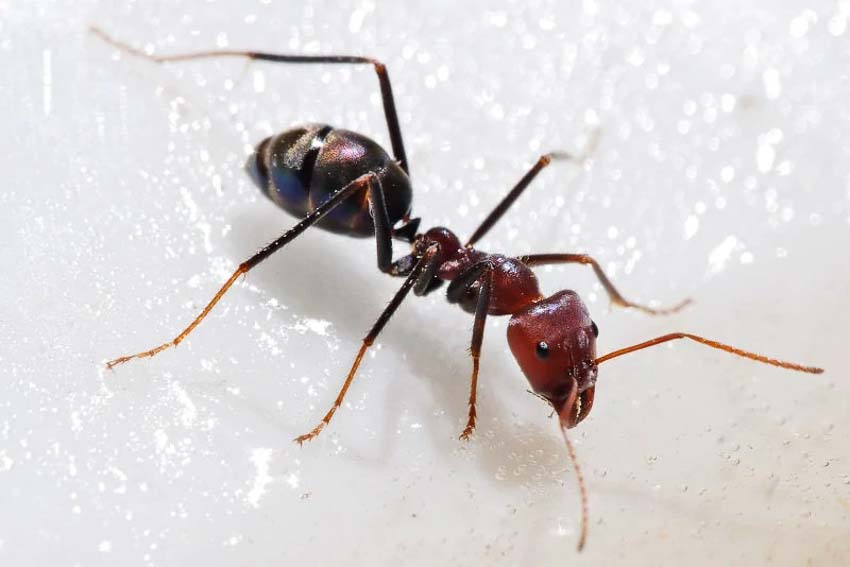A Guide for Your Yard and Home
Even though ants play a critical role in the environment, they are annoying pests in your yard. It’s even worse when they move indoors. If this happens, you know it’s time to learn how to get rid of ants.
The Importance of Ant Control for a Comfortable Living Space
Ants move about ten times more dirt than earthworms, but the worms get all the credit. That’s probably because worms are much easier to live with than ants.
As garden helpers, ants are amazing, but when you’re trying to enjoy time outdoors, they make it tough to relax.
Besides their biting and stinging, there are several reasons to get rid of ants in your home and yard.
Ants can damage your house, carry diseases, and contaminate your food supply. If you have an ant infestation, you can take back your home with these effective ant removal tips.
How to Get Rid of Ants in Your House
Ants are known for their hard work and persistence. It can be difficult to get rid of ants in your house, but if you exhibit just a fraction of their tenacity, you’ll be successful.
Chemical Methods for Indoor Ant Control
There are several chemical products available for indoor ant control. Since not all insecticides work to control all types of insects, be sure to find one that targets the type of ant you have.
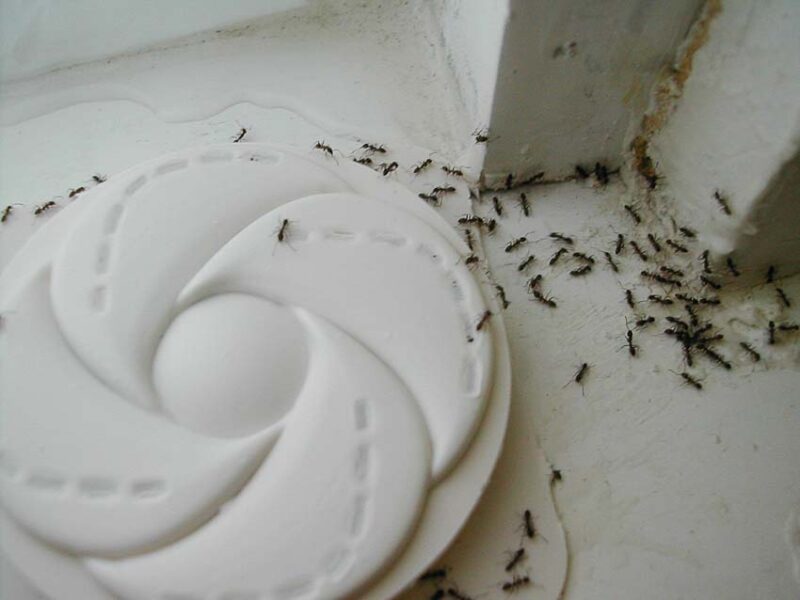
Method 1: Ant Baits and Traps
Ant baits work by attracting worker ants, who take the bait and carry it back to their nest. The poison is mixed with an attractant, usually sugars or carbohydrates.
At first, it brings in more ants, which means the bait works.
Ant bait stations, called traps, come in different forms, including granules, liquids, gels, and solids, and they contain various poisons. Among these, sodium borate decahydrate, derived from borax, is one of the most common. They may also contain chemicals like fipronil or avermectin .
Find ant bait with an attractant and poison that attracts and kills the type of ants you have, then set up several traps in the area where ants are a problem. The most important thing is to let the ant bait do its job by letting them return to the nest.
The poison can take 3-4 weeks to kill the entire colony, including the queen.
Method 2: Insecticidal Sprays
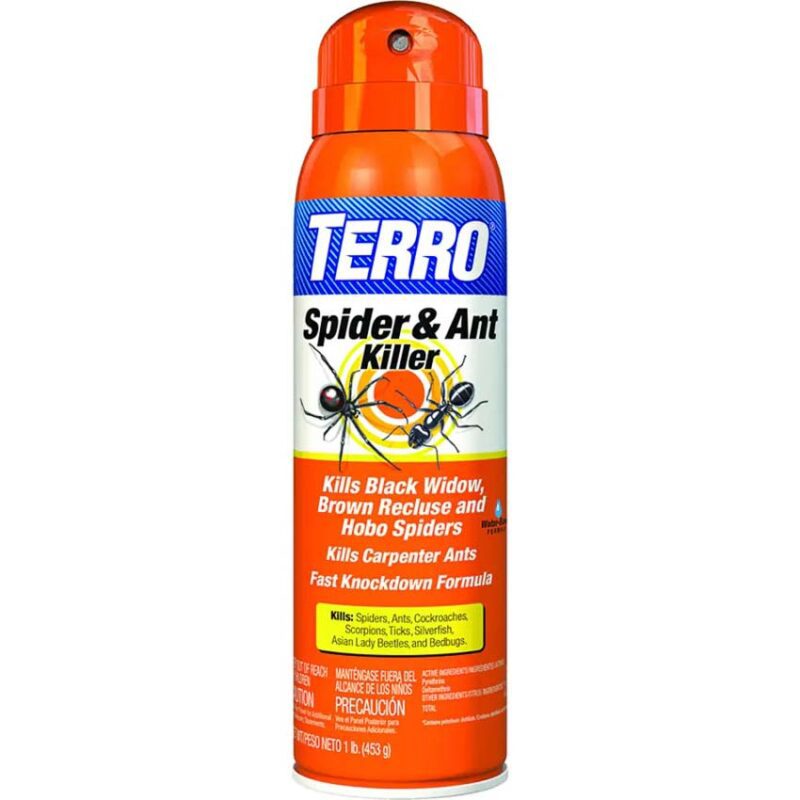
Commercial insecticide sprays work by killing ants on contact. Unfortunately, while these insecticides are more effective at killing the ants you see, they are less effective at killing the ones you don’t.
To apply, follow the directions on the packaging. Ants have a powerful sense of smell and will avoid insecticidal sprays by trying to go around them. You can make that harder by spraying directly into cracks where you’ve noticed ant activity, creating a perimeter around the problem areas.
Method 3: Boric Acid Solutions
Boric acid is the chemical compound that is extracted from borax , a powdery, alkaline mineral that is also a well-known laundry detergent. It kills ants in about 24-48 hours, allowing them enough time to return to the colony and share the boric acid with their queen.
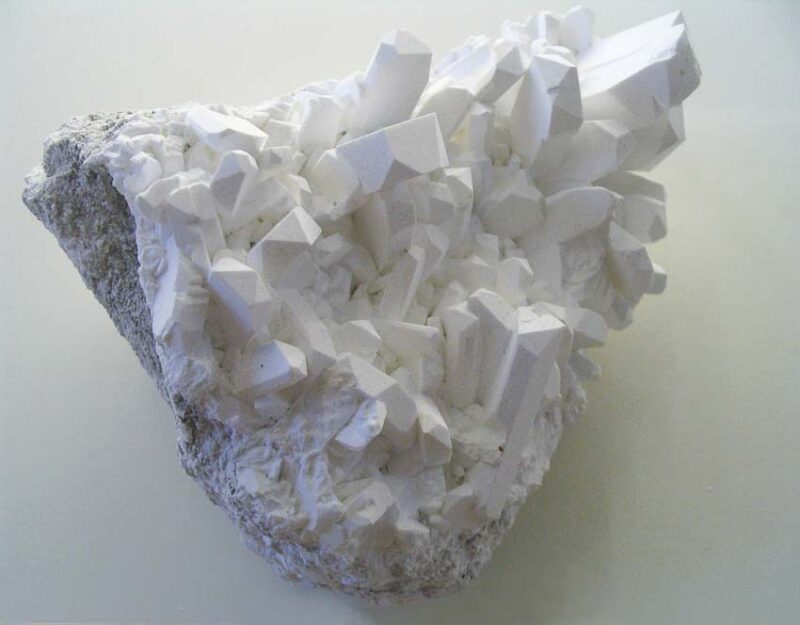
Borax doesn’t kill ants unless they ingest it, so when it is marketed as an ant killer, it is mixed with an attractant. The powdered forms are more finely ground than laundry products, making them more easily ingested, and they can be mixed into a solution and placed in refillable bait stations.
Try these simple homemade ant solutions:
- Mix ½ cup sugar, one tablespoon of borax, and 1.5 cups of water. Soak cotton balls in the solution and place them in areas where ants are a problem.
- Some ants are more attracted to carbohydrates and proteins than sugar, so try mixing borax with peanut butter or grease instead of sugar. Make a paste and spread it on a piece of cardboard or heavy paper.
- Mix ½ cup of honey with two tablespoons of borax and spread it on a piece of cardboard.
Change the bait every few days to keep it fresh, and pay attention to the ant activity. If your ant bait is too strong, you will notice dead ants near the traps, but it won’t be effective if it’s not strong enough.
You should notice a decrease in the number of ants within a few days.
Natural Methods for Indoor Ant Control
If you’re interested in learning how to get rid of ants naturally, there are a few chemical-free methods that are very effective at controlling ants.
Method 4: Diatomaceous Earth
When it comes to annoying insects, diatomaceous earth (DE) is a gardener’s best friend. It kills several types of insects, so it’s an excellent product to have in the garden shed.
DE is a sedimentary rock that is crushed into a powder, and it comes from fossilized algae.
Under a microscope, the particles look like tiny pieces of glass, and it works by cutting through the exoskeletons of ants when they walk through or ingest it. Unfortunately, even though DE is highly effective at killing ants, they don’t consider it a food source, so they don’t take it back to the nest.
Method 5: Vinegar and Water Solution
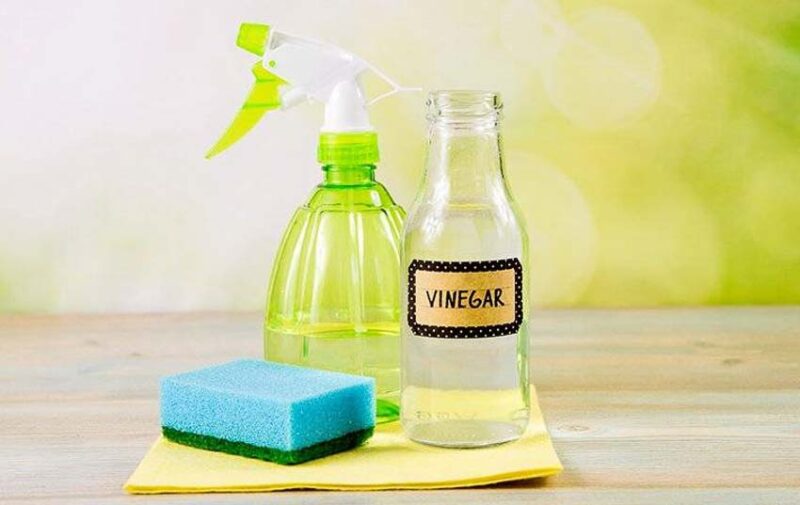
A 50/50 solution of white vinegar and water will kill ants in less than an hour. You can spray it safely indoors directly on ants to kill them, and it is an excellent deterrent when sprayed near doorways, windowsills, or anywhere ants enter your home.
Method 6: Essential Oils
Essential oils are effective natural ant remedies that can also make your home smell better. Ants use pheromones to communicate with each other about how to find food and return to the nest.
Effective for ant control, the potent smells of essential oils mask these chemical scent trails and cause confusion. Some essential oils also contain substances that are toxic to ants.
The best essential oils for ants are peppermint, tea tree, clove, lemon, and orange. Citrus oils, which contain d-limonene, and clove oil, which contains eugenol, kill ants on contact.
You can make an effective DIY ant spray that will also make your home smell better with this recipe:
- 15 drops each of peppermint, clove, and citrus oil
- 14 ounces witch hazel (helps water mix with oils)
- 2 ounces dish soap or Castile soap
Add these ingredients to a 32-ounce spray bottle, and top it off with water. Apply wherever you see ants. The essential oils will deter and kill the ants, while the soap will help erase their trails.
How to Get Rid of Ants in Your Yard
Controlling ants in your yard can help get rid of ants in the house, too. It also makes the time you spend in your backyard more enjoyable.
Chemical Methods for Outdoor Ant Control
Keep children and small pets away from these chemicals, and be aware that chemical ant treatments can be long-lasting.
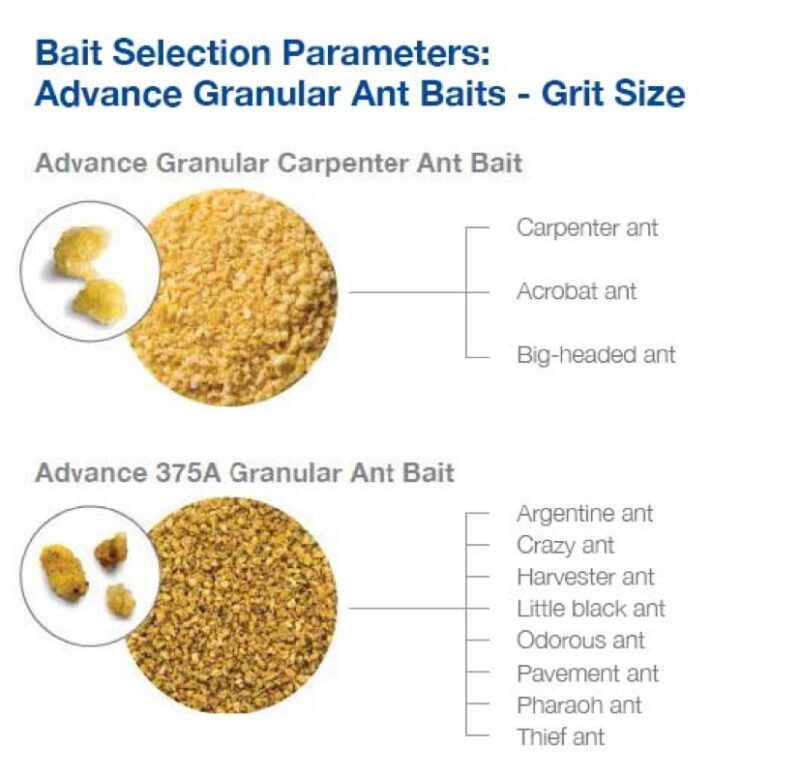
Method 1: Granular Ant Bait
Knowing the difference between granular ant bait and granular insecticide is important. Both are available for outdoor use, but granular ant bait contains food particles that ants will take back to the nest.
Spread the pellets around your home’s foundation and in other affected areas.
Method 2: Liquid Insecticides
There are several types of liquid insecticides for outdoor ant control. Choose from concentrated liquid and ready-to-use liquid ant traps.
Refillable ant bait stations work best because liquids are easier for ants to digest, and the traps can be refilled to stay moist.
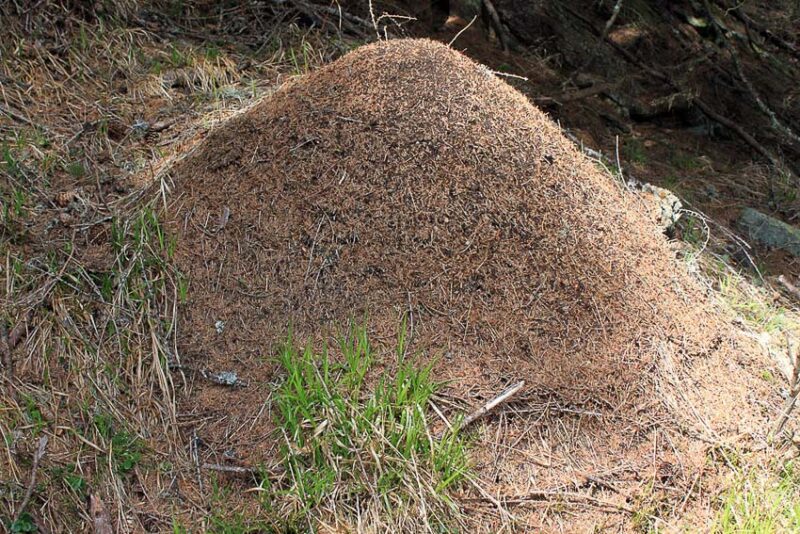
Method 3: Ant Mound Treatments
Finding where ants live is impossible, so if you find an ant mound, consider yourself lucky. Treat the mounds directly to get rid of ants quickly by opening them up and applying liquid, granular, or powdered ant killers.
Liquid ant bait is best to ensure the poison reaches the queen.
Natural Methods for Outdoor Ant Control
Want to know how to get rid of ants naturally outside? There are a number of effective ways to control ants outdoors without using chemicals.
Method 4: Boiling Water
Treating an ant hill with boiling water is effective and doesn’t cost anything. Be aware that boiling water can kill surrounding vegetation, however. Add liquid dish soap or Castile soap to kill more ants for best results.
Method 5: Nematodes
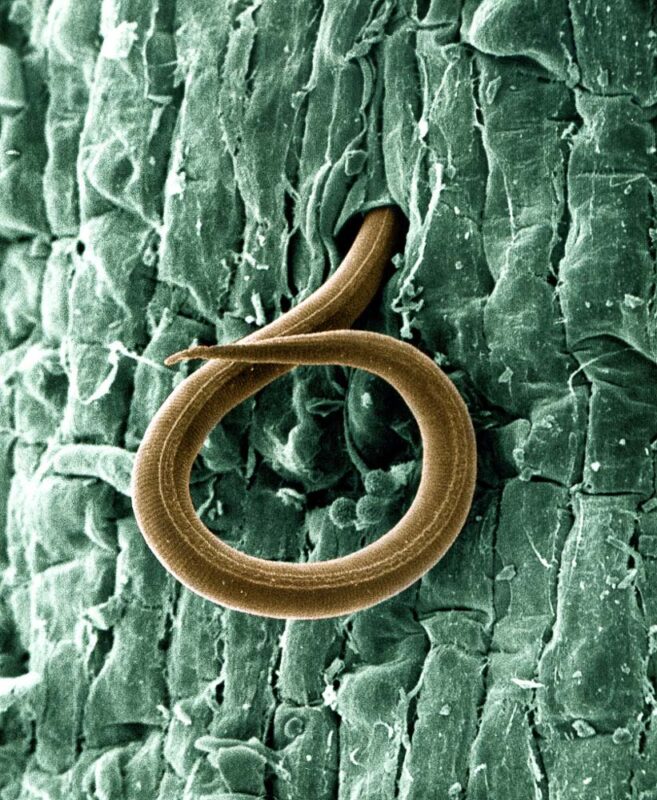
Nematodes , or roundworms, occur in soils all over the world. They feed on bacteria, fungi, and microorganisms and are an essential part of the nutrient cycling that occurs in your soil.
They help control pests like ants, fleas, ticks, grubs, and weevils, but they are safe for children, pets, and wildlife.
The most effective nematode for killing ants is Steinernma carpocapsae . They already exist in your soil, but you can add more of these soldier bugs to control ants in your yard.
Liquid and granular disbursal methods can be applied directly on your lawn and in ant mounds.
Method 6: Organic Repellents
There are many organic repellents to use that deter ants from making a home in your yard. Vinegar works just as well outdoors as it does inside your home to kill and repel ants, and you can also plant mint outside your home to keep ants away.
Natural products like cayenne pepper, lemon juice, and cinnamon deter ants.
Keeping Ants Away From Your Home and Yard
Ants are opportunistic pests and will move in if your yard is a suitable habitat.
Sealing Entry Points and Cracks
Keep ants out of your house by sealing all entry points and cracks. Ants can get through tiny fissures in your foundation, window sills, and doorways, so seal them up as best you can and regularly spray these areas with natural or chemical insecticides and repellents.
Maintaining a Clean Home Environment
Ants are attracted to food, water, and decaying wood, so if your home environment provides these, then you’re likely to find ants in your home. Maintain a clean home and wipe down your countertops with citrus solutions, which are toxic to ants.
Proper Yard Care and Landscaping
Your yard provides everything these pests need to thrive, but taking proper ant prevention measures in your lawn and landscaping can help keep them from taking over.
Eliminate piles of debris and remove tree stumps to avoid attracting carpenter ants. And be aware that many types of plants, like clematis, peonies, and roses, attract ants.
If you’re going to grow any of these, try to keep them as far away from your house as possible.
FAQ: Common Questions About Getting Rid of Ants
What is the most effective way to get rid of ants?
The most effective way to get rid of ants is by using ant bait. You can use many different types of ant bait to get rid of ants inside and outside.
Ants ingest the bait containing a slow-acting poison and take it back to the nest.
How long does it take to get rid of ants?
How long it takes to get rid of ants depends on your method. In any case, you should see the number of ants decrease in a few days, but it might take up to a month to get rid of the ants completely.
Are there any natural remedies to kill ants?
There are many natural remedies to kill ants, like boiling water, vinegar solutions, diatomaceous earth, and essential oils. However, one of the most effective chemical agents for killing ants is sodium borate, a naturally occurring sedimentary rock commonly known as borax.
What attracts ants to my home?
Ants are attracted to moisture and food, so damp areas or standing water caused by leaking hoses and plumbing will attract ants to your home.
They are also more likely to show up when they find sweets or carbohydrates like pet food and bread.
Can ants cause damage to my home or yard?
Ants can cause considerable damage, especially if they get inside your home and build a nest in the walls. They can chew through wires, drywall, and insulation.
In your yard, ant mounds can smother your grass and destroy your lawn’s root structure.
Should I hire a professional exterminator to get rid of ants?
If you have an extensive ant infestation, it might be time to hire a professional exterminator.
Exterminators know how to get rid of ants fast, and they can help you find ways to prevent ants in the future.

